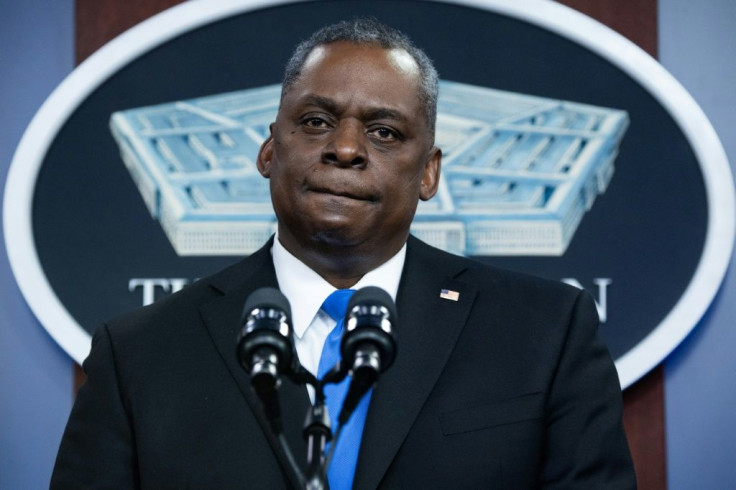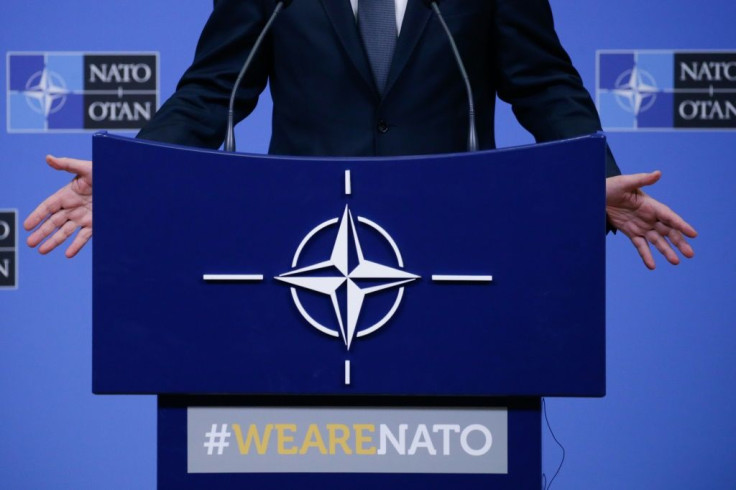New Pentagon Chief To Reassure NATO Allies
US Defense Secretary Lloyd Austin will this week reaffirm Washington's commitment to NATO and reassure allies they will be consulted on important decisions, hoping to turn the page on four years of withering criticism from former president Donald Trump.
NATO defense ministers are meeting virtually Wednesday and Thursday, and the new Pentagon chief will send "a supportive message ... about how relevant NATO is," his spokesman John Kirby said.
"He wants to revitalize our commitment to the alliance," Kirby added.
The messaging stands in stark contrast to Trump, who frequently upbraided NATO partner nations on their levels of defense spending and who famously once called the transatlantic alliance "obsolete."
Kirby said Austin would underscore the new administration's stance that "we're better when we act together, that teams make us stronger and that collective security really is a shared responsibility."
The critical issue of the withdrawal of US forces from Afghanistan, scheduled for completion in early May, will be high on the agenda, though Kirby said ultimately that would be a decision for President Joe Biden.
"If and when that happens, that's a decision for the commander-in-chief. (Austin) wants to obviously be able to help inform that decision-making process," Kirby said.

NATO officials felt sidelined last year when the US announced its withdrawal plans for Afghanistan, and Germany wants to extend its mission there.
"As (Austin) has said in every conversation he had with his counterparts, particularly his NATO counterparts: no decision that we make is going to be done without proper consultation and discussion with them."
Under a deal signed last year by Washington and the Taliban, the US agreed its troops and all foreign forces would quit Afghanistan by May 2021.
In return, the Taliban agreed to a series of security guarantees and started peace talks with the Afghan government, but violence in the country has surged in recent months.
In his final days in office, Trump unilaterally reduced US forces in Afghanistan to just 2,500 -- the lowest since the start of the war in 2001 -- even as Taliban violence continued unabated.
A study mandated by the US Congress has called for a delay in the pullout, warning it would effectively hand the Taliban a victory.

Other items up for discussion include a freeze on the partial removal of US troops from Germany that was ordered by Trump.
In June, he told the Pentagon to slash the US presence in Germany to 25,000 troops from 34,500 currently.
Trump had cited anger with Germany for not meeting NATO defense-spending targets and for treating the US "badly" on trade.
The decision caused consternation in Berlin and inside NATO over fears it could undermine the alliance's deterrence capabilities in the face of a resurgent Russia.
But the Germany pullout had not been executed before Trump left office, and Biden's administration will review US force posture and "make further posture decisions in direct consultation with our interagency partners and our allies and partners," Pentagon spokesman Lieutenant Colonel Thomas Campbell said.
Trump often berated NATO partner nations that failed to meet a two-percent defense spending pledge first agreed in 2014.
Again, Kirby said, allies can expect a different tone under Biden.
The spokesman said that while Austin likely will "reinforce the view that collective security is a shared responsibility," he will also "recognize that many of our NATO allies are, in fact, meeting and/or exceeding that two percent. And many that aren't there yet are striving mightily to get there."
Defense ministers are also expected to discuss the foreign jihadist fighters still detained in camps in northeastern Syria administered by Kurdish forces.
The new Biden government has called on the international community to repatriate its nationals, as the Trump administration had also done.
A UN expert has said more than 64,000 people, 15 percent of them foreigners, live in squalid detention camps.
Most of the detainees are women and children, generally family members of Islamic State group fighters. Several European countries have nationals living in the camps but have been reluctant to repatriate them.
Tensions with Turkey, a NATO member, could also be on the agenda, particularly after Ankara purchased the Russian S-400 missile-defense system.
Both the Trump and Biden adminstrations have asked Turkey to abandon the system.
© Copyright AFP {{Year}}. All rights reserved.





















